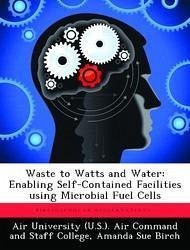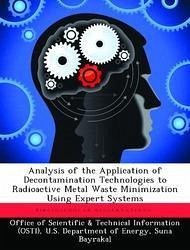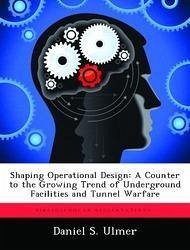Nicht lieferbar

Waste to Watts and Water: Enabling Self-Contained Facilities Using Microbial Fuel Cells
Versandkostenfrei!
Nicht lieferbar
Combat support is not sexy in the United States Air Force. And future combat supportthat can draw yawns from even the most eager support officers. In the service known for glamorous, cutting-edge technologies, why doesn't American innovation show up in the support realm? If funding policies continue to ignore the state of the art for military facility construction, America will face a strategic surprise by 2030. I don't have a crystal ball, but there are four possible threats to national security in the year 2030. One, we may face a conventional war with a well-equipped foe such as China or Ru...
Combat support is not sexy in the United States Air Force. And future combat supportthat can draw yawns from even the most eager support officers. In the service known for glamorous, cutting-edge technologies, why doesn't American innovation show up in the support realm? If funding policies continue to ignore the state of the art for military facility construction, America will face a strategic surprise by 2030. I don't have a crystal ball, but there are four possible threats to national security in the year 2030. One, we may face a conventional war with a well-equipped foe such as China or Russia. Two, we may continue to face a terrorist threat. Three, America may be involved in small wars, counterinsurgencies, or humanitarian relief efforts--missions the military thinks are one-off events though they dominated the last half-century of American warfare. Or four, the world may face water and energy resource shortages. It turns out we don't need a crystal ball. Microbial fuel cells (MFCs) are a sure bet for future national security. MFCs are a budding technology that converts waste like sewage, food scraps, paper, plastics, industrial/agricultural waste, etc. into power and clean watercapabilities required for all four future scenarios. First, MFCs allow facilities in remote areas without a need for infrastructure or supply lines. Second, MFCs remove American government, businesses, and homes from the power grid and other vulnerable infrastructure, a key to surviving a terrorist threat. Third, MFCs provide clean water, power, and sanitary waste disposal. Providing these utilities helps governments stressed by war or natural disaster win hearts and minds--building foundations for democratic and economic development. Fourth, MFCs meet looming water or energy shortages. By 2030, MFCs could reduce fresh water requirements by 70% and produce up to 600 watts of power per person while fueled only by waste products. Sure, they'll help us meet military needs, but could also This work has been selected by scholars as being culturally important, and is part of the knowledge base of civilization as we know it. This work was reproduced from the original artifact, and remains as true to the original work as possible. Therefore, you will see the original copyright references, library stamps (as most of these works have been housed in our most important libraries around the world), and other notations in the work. This work is in the public domain in the United States of America, and possibly other nations. Within the United States, you may freely copy and distribute this work, as no entity (individual or corporate) has a copyright on the body of the work. As a reproduction of a historical artifact, this work may contain missing or blurred pages, poor pictures, errant marks, etc. Scholars believe, and we concur, that this work is important enough to be preserved, reproduced, and made generally available to the public. We appreciate your support of the preservation process, and thank you for being an important part of keeping this knowledge alive and relevant.








